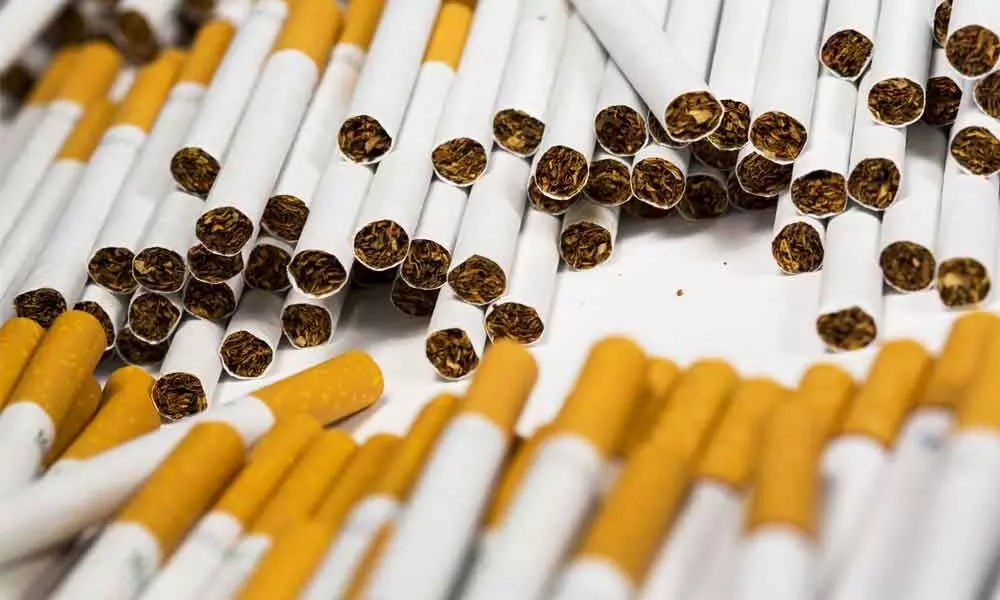Over 500 youths urge Prime Minister, Finance Minister to increase taxes on tobacco products

Over 500 youths including youth associations across India have urged the Prime Minister and Finance Minister to increase taxes on all tobacco products in the upcoming budget of 2022-23.
Bengaluru: Over 500 youths including youth associations across India have urged the Prime Minister and Finance Minister to increase taxes on all tobacco products in the upcoming budget of 2022-23. On the occasion of National Youth Day themed around 'Saksham Yuva, Sashakth Yuva' (Capable Youth, Strong Youth), they have appealed to Prime Minister Mr Narendra Modi & Finance Minister Ms Nirmala Sitharaman to increase excise duty on cigarettes, bidis and smokeless tobacco and enable a healthy and addiction-free growing ecosystem for the young people of the country.
According to the youth groups, increasing excise on all tobacco products can be a very effective policy measure to address the immediate need to raise revenue by the central government. It will be a winning proposition for generating revenue and reducing tobacco use and related diseases as well as COVID related comorbidities.
Some of the major recommendations to the Prime Minister and the Finance Minister include significantly increasing the existing tax burden so that tobacco products become unaffordable by the vulnerable (especially the youths) and reduce the economic burden it imposes, minimizing the discrepancies in taxation across different tobacco products and simplifying the tobacco tax structure by reducing the number of tax tiers and implementing stronger packing rules. They also recommend that the revenue generated by tax hike be used to shift tobacco farmers to other crops, provide an alternate livelihood to bidi rollers, tobacco vendors and others who might be affected by the tax hike.
"Tobacco use not only harms our health but it is also a threat to the health of our friends and family. Additionally, tobacco users also have a greater risk of developing severe cases of COVID-19. I want all of you to break free from dependence on tobacco and stay healthy" said PV Sindhu, Ace Badminton Player & Olympian.
Increasing taxes means a win-win-win for the state as it increases revenue; reduces consumption & saves lives; reduces the state burden of treatment costs. It is a globally accepted strategy that by tripling the taxes, revenue can be doubled, and consumption can be halved. When tobacco prices go up, smoking and other tobacco use go down, especially among vulnerable groups such as youth, pregnant women and low-income smokers.
Pointing out that youngsters are vulnerable to tobacco promotions in the form of surrogate advertisements Roshan, a 10th standard student from St Joseph's Boys' High School, Bangalore said "Our movie stars pose with cigarettes creating an impression that it is cool. Our innocent minds fail to recognize the trap and many of us fall prey and end up becoming addicted to tobacco. I urge the Prime Minister and the Finance Minister to hike tax on tobacco so that youngsters will no longer be able to afford them."
India is in the midst of the COVID-19 third wave and it should be noted that available research indicates that tobacco use increases the risk for severe COVID-19 infection, complications, and death. Tobacco use which is a slow-moving pandemic itself claims the lives of 13 lakh Indians each year. It is critical than ever before to keep tobacco products out of the hands of vulnerable populations like youth and the underprivileged sections of society.
Raising taxes on tobacco products is the single most effective way to reduce tobacco use and save lives in India. Tobacco taxes remain well below rates that are commonly present in countries with effective tobacco control policies, making tobacco products very cheap and affordable. All tobacco products in India are under-taxed. According to World Health Organisation (WHO), raising the price of tobacco products through tax increases is the most effective policy to reduce tobacco use. Higher tobacco prices decrease affordability, encourage quitting among users, prevent initiation among non-users and reduce the quantity consumed among continuing users. The WHO recommends that the share of excise tax for tobacco products should be increased to 75% of the retail price.















